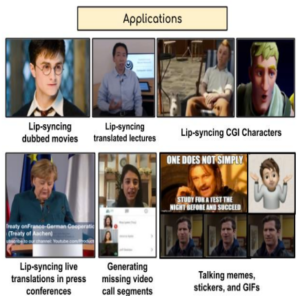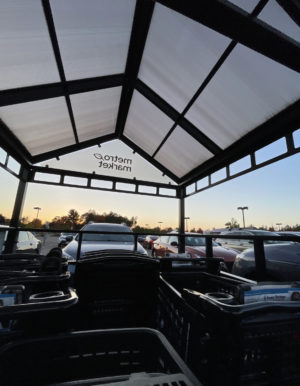A look at racism
May 16, 2019
NAOMI CLENDENNING
The Mirror
Various events in her life had Rachel Clendenning moving multiple times throughout her life. From northern Wisconsin to southern Mississippi, the events in her life allowed Clendenning to obtain a well-rounded idea of the U.S., culturally and racially.
Q: When did you live in the South? Where did you live?
A: So we moved to Mississippi before I was a year old and we were there till the first major hurricane and we moved to North Carolina, probably when I was about three and I was raised in North Carolina and I stayed there until we moved to Florida with your dad, Pensacola, Florida. So there are three states in the South we’ve lived in and we lived in Pensacola for eight years before we moved up north.
Q: When did you live in the North? Where did you live?
A: From Pensacola, we moved to Minnesota and then from Minnesota to the UP of Michigan and then from the UP of Michigan to Stevens Point, Wisconsin.
Q: What was school like while you lived in the South?
A: My generation did not have as many problems as say my older sister’s class. She is three and a half years older than me and was starting high school when schools were just beginning to be desegregated. The black high school was used for just ninth graders and the white high school was for grades 10 through 12. I remember my sister coming home from school and telling me about the gang fights about the desegregation and how her high school was a scary place. For me though, all the kids got used to going to school with each other. The black kids and the white kids didn’t talk a lot, besides the sports teams, nobody really interacted with each other. We had a homecoming queen and a Miss New Bern, and every year it would switch off between the white girl and the black girl being crowned homecoming queen, and the other got the title of Miss New Bern. Looking back on it now that was weird, but back then we didn’t think twice about it.
Q: Do you remember any events of extreme racism? What were they?
A: Extreme racism is why my family left Mississippi. When I was little, I remember waking up in the middle of the night and hearing police and fire truck sirens. I came to find out that it was because some people were burning a cross in my front yard. My dad grew up in Rhinelander, Wisconsin, and didn’t grow up as segregated as the south was. He invited a black family over to our house one day, a coworker from work, and we thought nothing of it. Apparently, our neighbors weren’t having it, hence the cross burning. A few weeks after that incident my brother had a shotgun pulled on him by our neighbors who we were very close to because they didn’t like that we had a black family over to our house. We moved out of Mississippi a month later.
Q: When you lived in Pace, Florida in the 1990s, was it better than your youth, or worse? How so?
A: I would say it was better. Maybe it was the same and I was just a young adult unaware of the world around me. When I was in my twenties living in Florida, I didn’t pay much attention to politics so if there was racial violence around me, I didn’t know.
Q: When you lived in Pace, Florida again from 2016 to 2018, was it different from the 1990s? Better or worse? Why?
A: It was definitely different. One big thing that I noticed was how much violence I became aware of while living in Pace again. The 2016 Presidential election had me paying closer attention to the news and politics than I ever had before in my life. Maybe that was why I noticed all the violence and drugs in the area that time around. Also, I didn’t have many reasons to go into the inner city of Pensacola when I was younger, but the second time living there I felt like I was in the city more, seeing more of what the area was really like.
Q: Do you remember any extreme racism in the North? What was it?
A: I wouldn’t say extreme. The thing that I noticed while living in the north was that there wasn’t much racism in the sense of outright calling people of color derogatory names, but that people had a more outspoken sense of white pride. People would make comments about how people of color were lazy or disgusting, but they didn’t say it about a specific person, because in central Wisconsin, there isn’t much racial diversity.



































































